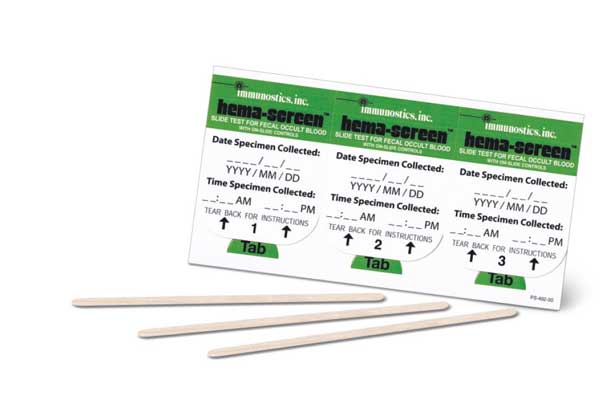

THUNDER BAY – HEALTH – In Ontario, colorectal cancer is the second most common cause of cancer deaths in men and third most common cause of cancer deaths in women. However, there are two cancer screening tests available to help prevent late-stage diagnosis and death from this type of cancer: the ColonCancerCheck Fecal Occult Blood Test 9FOBT) kit and colonoscopy.
In order to answer your questions about colorectal cancer screening, we asked Dr. Claudette Chase, a family physician working with the Sioux Lookout Northern Physician Group that serves remote First Nations communities. Currently, she is the family physician for Eabametoong First Nation.
Why is colorectal cancer screening important?
Ontario has a good screening approach that can detect the cancer early enough to achieve a cure. In fact, when caught early through cancer screening detection, there is a 90 percent change that colorectal cancer can be cured. You should make screening a health priority.
What are some barriers preventing people from completing their FOBT kits?
Two of the biggest barriers that I have found through my practice are: nobody likes ‘playing’ with their poop and not completing the FOBT kit correctly. The first barrier is probably the biggest barrier, but it’s something that everyone needs to do, icky or not.
More importantly, the FOBT kit has specific instructions that need to be followed. If you don’t follow the instructions carefully, the lab can’t test the kit and you’ll have to re-do your kit all over again. I go over the instructions carefully with my patients, while emphasizing the usefulness of the test, and recommend that you do the same with your healthcare provider and ask questions if you don’t understand. It’s better to get it right the first time!
What happens if your FOBT kit comes back positive?
If your FOBT kit result comes back positive, don’t panic. It doesn’t necessarily mean you have cancer, but that blood was found in your stool and you required more testing. As a next step, you may be referred for a colonoscopy.
What are doctors looking for during a colonoscopy? Does it hurt?
A colonoscopy requires a little bit preparation and time. For this test, you’ll need to clean out (empty) your colon so that doctors have a clear view of your colon and rectum. This is accomplished by following a special diet and by taking laxatives. During the test, you will be sedated so that you don’t feel any pain. Then the doctor, or in some cases a nurse practitioner, looks at your colon using a long, flexible tube with a camera at the end. The camera will show them any abnormality that needs to be investigated further.
What happens if you find something during the colonoscopy?
Many times, the doctor will see small bumps, called polyps, which will be removed. These polyps may not be cancerous, but are important to find and remove because they could become cancerous. If the doctor does find polyps during the colonoscopy, they will take a sample and send it to the lab to be examined. If something more serious is found, the doctor will discuss options with you for treatment.
Why do some people screen for colorectal cancer with colonoscopy and some with an FOBT kit? Why not just send everyone for a colonoscopy?
According to Cancer Care Ontario’s colorectal cancer screening guidelines, men and women who are at higher risk (such as having a family history of colorectal cancer) should be screened with colonoscopy.
While there is small risk to this procedure, not everyone needs more invasive and time intensive procedure. Simple is good. Therefore, if you just need the FOBT kit, that is the simplest. With each test you complete (every 2 years) it becomes more likely that any abnormality will be detected.
Cancer Care Ontario released a new online cancer risk assessment tool called ‘My CancerIQ’. Take a few minutes to fill out this assessment online to find out what your risk level is for colorectal cancer. Visit, www.mycanceriq.ca to see what your risk level is and learn how to prevent cancer.
If you have any more questions about the ColonCancerCheck FOBT kit, how to complete it, or the provincial screening program, visit: www.ColonCancerCheck.ca.
